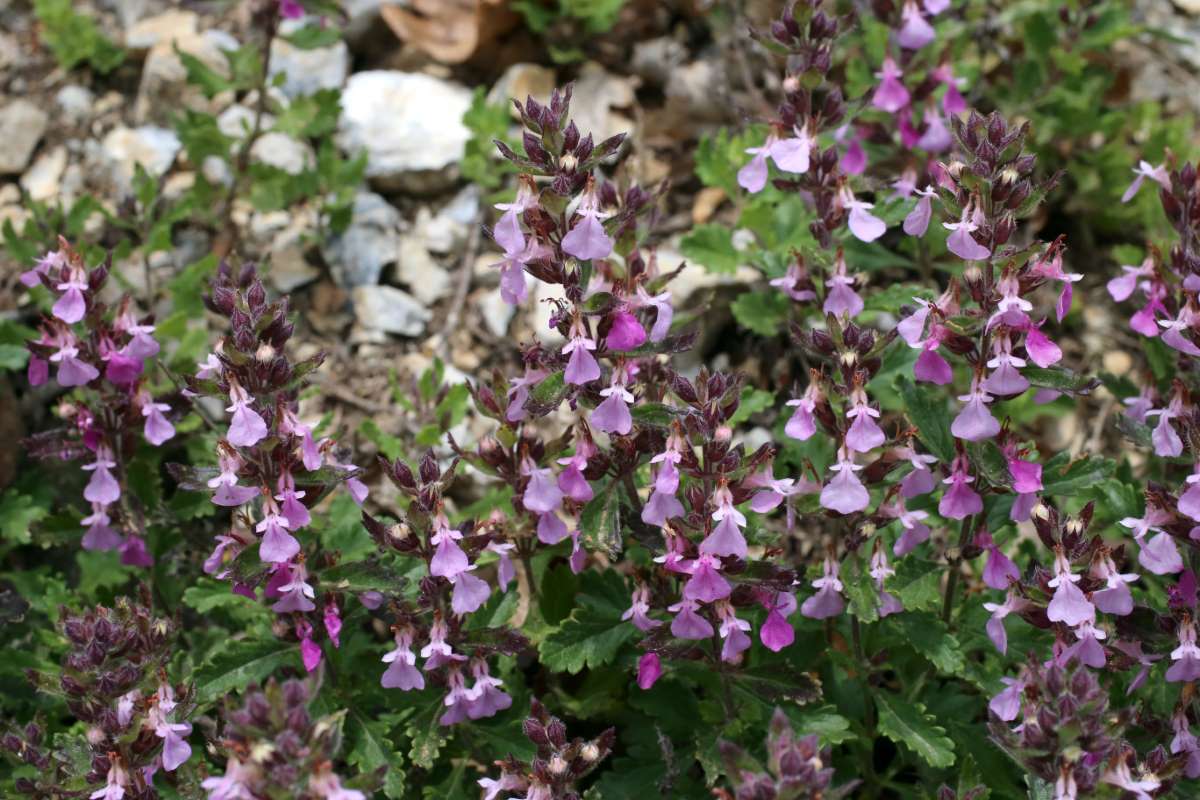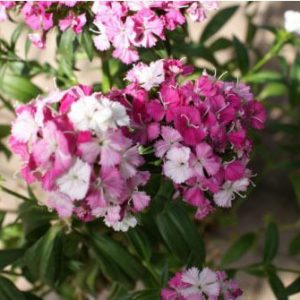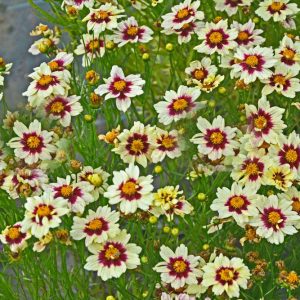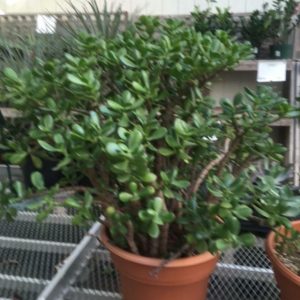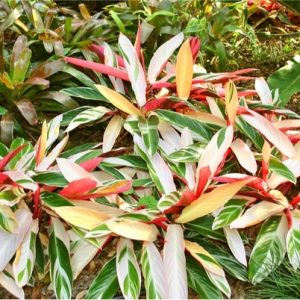Description
Teucrium – Germander –
There are approximately 100 herbaceous perennial and evergreen and deciduous shrubs and subshrub in the mint family that make up this genus. They are usually found in thickets, woodland, dry, rocky places, especially in the Mediterranean region. Teucriums are grown for their attractive habit, aromatic foliage, and whorled clusters or racemes of 2-6 tubular to bell shaped, sometimes 2 lipped flowers. The leaves, arranged in opposite pairs on squarish stems, are simple or lobed, and either smooth edged or toothed. Teucriums have a variety of garden uses: The small species to 12″ tall, are suitable for a rock garden, low hedge, raised bed, or trough, the shrubs, are best grown in a sheltered border or against a warm sunny wall and, in mild area, may be used as a hedge or trained into a topiary.
Grow in light well drained, preferably neutral to alkaline soil in full sun, the smallest species retain their compact habit better on poor, gritty soil. Able to withstand hot, dry conditions and poor soils. Divide perennials in fall
Prone to Lepidoptera.
T. chamaedrys – Wall germander – This alpine evergreen or deciduous subshrub from Europe and Southwestern Asia grows 12-24″ tall and 12-36″ wide. It produces egg shaped, glossy either smooth edged to toothed, dark green leaves with gray undersides, to 3/4″ long. In summer and early autumn, bears loose to dense, terminal racemes of 2-lipped , pale pink to deep rosy-purple flowers. May be cut to within 1-2″ of ground level in spring to maintain compact habit. Excellent as a low hedge.
Zones 4-9

